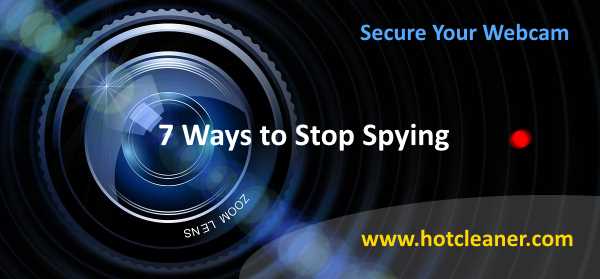By Click&Clean -Updated Friday, July 10, 2020. Nowadays, webcams are standard equipment on most devices, including desktop and laptop PCs, tablets, and smartphones. A webcam allows you to send a picture in real time from one device to another through an Internet connection.
Check your search qualityShow results for Click&Clean …However, this does not mean that we know what we are doing with them, and many people simply forget that they are vulnerable to being hacked. Recent Wizcase research showed that more than 15,000 private webcams are accessible to the general public.

Webcam hacking attacks are one of the most popular activities of malicious users and have been actively exploited by them for many years; for example, to obtain visual information about the details of your home.
In most cases, webcams have indicator lights that show when the webcam is in use. However, hackers and cybercriminals create malware that can turn off the activity indicator. If your webcam has been hacked, then even though the notification light is off, the webcam can capture video, and someone can spy on you.
The simplest solutions are the most effective. To be absolutely sure that no one is spying on you through your webcam and your webcam is protected from potential attacks, use some electrical tape or a webcam cover to physically cover up your webcam.
The next best step to protect your webcam is to unplug or disable it. If you are using an external webcam connected via USB, just unplug it when not in use. If your laptop or desktop has a built-in webcam, disable it completely via Device Manager.
It is crucial to regularly run anti-malware scans to protect your webcam. But traditional antivirus software may not catch webcam-focused malware or spyware. Therefore, you should consider downloading a second opinion anti-malware scanner, such as Malwarebytes.
Often, scammers use phishing emails to trick users into opening harmful links or downloading malicious files from email attachments. If you receive an email from someone you don't know, don't open it, and don't click on attachments or any suspicious links.
In addition, many webcam hackers use shortened links on social media sites that will redirect you to a malicious website or automatically start downloading malware. Therefore, never open any unknown files, shortened URLs, or any links, unless you're sure that it's from someone you trust and know.
To prevent your laptop or desktop computer from catching malware, it's important to keep your operating system, web browser, and any other type of software up-to-date. If you use outdated vulnerable firmware, this could compromise your privacy, and cybercriminals can easily exploit these vulnerabilities and flaws.
We have created a special web page with where you can check if your camera is working and fully configured in a bit more secure environment. We do not track or store your media information in any way.